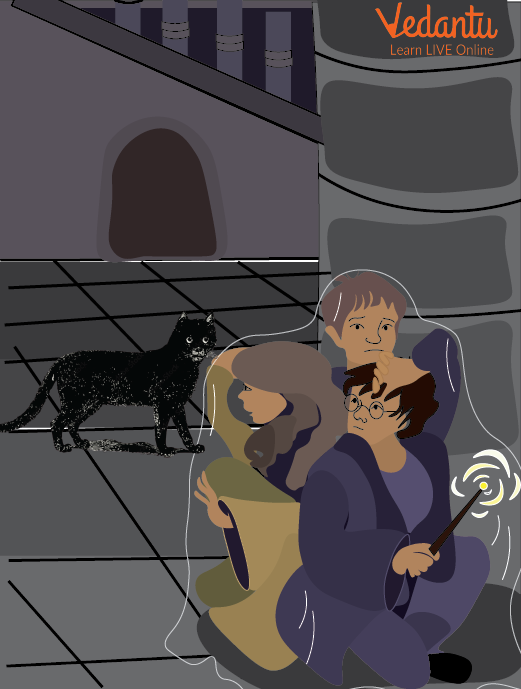The Potter - By J. K. Rowling

Introduction to The Potter
J. K. Rowling is a British author best known for her seven-book fantasy series Harry Potter. A young wizard named Harry Potter and his companions Hermione Granger and Ron Weasley, who are all students at Hogwarts School of Witchcraft and Wizardry, are featured in the novels.
The major plot is around Harry's battle with Lord Voldemort, a dark wizard who wants to become immortal, overturn the Ministry of Magic, and rule over all wizards and Muggles (non-magical people).
As Potter was a common Muggle surname, the family was disqualified from the 'Sacred Twenty-Eight' because the person who compiled the list of allegedly pure-blood individuals, who remains unidentified, believed they were descended from tainted blood. In the world of Muggles, the surname Potter denotes a guy who makes pottery.
The Plot
The wizarding lineage of Potters is descended from Linfred of Stinchcombe, a beloved and quirky man in the area whose name, "the Potterer," eventually evolved to "Potter." Linfred was a wizard in the twelfth century. He was a hazy, forgetful man whose Muggle neighbours frequently sought his medical assistance. They all assumed Linfred was a sweet, charming old man pottering around in his garden with all of his amusing plants and had no idea that his great treatments for the pox and ague were made up of magic.
Linfred benefited from his reputation as a well-intentioned crazy since he was able to carry out the sequence of experiments that became the basis of the Potter family's wealth behind closed doors.
Skele-gro and Pepper up Potion, among other medicines that developed into potions still in use today, are credited to Linfred, according to historians. He was able to give each of his seven children a sizable sum of wealth upon his passing thanks to the sales of such remedies to other witches and wizards.
Hardwin, Linfred's eldest son, wed Iolanthe Peverell, a stunning young witch from the community of Godric's Hollow. She was Ignotus Peverell's granddaughter. She was the oldest of her generation and had inherited her grandfather's invisibility cloak because there were no male heirs.
Iolanthe informed Hardwin that it was a custom in her family for the ownership of this cloak to be kept a secret, and her new husband honoured her wishes. The cloak was then passed down to the oldest male in every succeeding generation.

The Invisibility Cloak
For several generations, the Potters married their neighbours—occasionally Muggles—and resided in the West of England.
Each member of the family contributed to the family finances through their labour of love and, it must be said, through the quiet brand of ingenuity that had distinguished their ancestor Linfred.
The Potter family has had two representatives on the Wizengamot: Ralston Potter, who served from 1612 to 1652 and was a strong advocate of the Statute of Secrecy (in contrast to more militant members who wanted to declare war on the Muggles), and Henry Potter (known as Harry to his close friends), who was a direct descendant of Hardwin and Iolanthe and served from 1913 to 1921.
When Henry publicly criticised Archer Evermonde, who had forbidden the magical community from aiding Muggles in fighting in the First World War, he provoked a little uproar. The family's removal from the "Sacred Twenty-Eight" was also significantly influenced by his vocal advocacy on behalf of the Muggle people.
The name of Henry's kid was Fleamont Potter. Fleamont got its name because Henry's mother, who was dying, asked him to carry on her maiden name, which would otherwise disappear.
In fact, he always ascribed his skill at duelling to the several times he had to battle students at Hogwarts after they had made fun of his name. He carried the load amazingly well.
Fleamont created the mystical Sleekeazy's Hair Potion ('two drops tames even the most annoying barnet'), which allowed him to treble the family's fortune.
When he retired, he sold the business at a considerable profit, but no amount of wealth could make up for him and his wife Euphemia's lack of children. When Euphemia discovered she was pregnant and their cherished boy, James, was born, they had all but given up hope of having a son or daughter.
Fleamont and Euphemia lived long enough to witness James wed Lily Evans, a Muggle-born woman, but not long enough to meet Harry, their grandchild. Due to their late age and the dragon pox that killed them days apart, James Potter received Ignotus Peverell's Invisibility Cloak.

The Porter Invisible Cloak
Summary
‘The Potter’ is a story which tells about the lineage of the great Harry Potter. It shows and tells the story of all the people in Harry’s ancestry and how the invisible cloak was passed on for generations.


FAQs on The Potter - By J. K. Rowling
1. Why was Muggle’s family disqualified from the 'Sacred Twenty-Eight’?
The family was excluded from the "Sacred Twenty-Eight" since Potter is a popular Muggle surname and the person who produced the list of purported pure-blood individuals thought they were descended from tainted blood. Henry caused a small commotion when he openly denounced Archer Evermonde, who had forbidden the magical world from assisting Muggles in fighting in the First World War. His outspoken support for the Muggle people also had a big impact on the family's expulsion from the "Sacred Twenty-Eight."
2. Name the representatives of the Potter family.
In the realm of Muggles, a person with the last name Potter is a potter. The Potter family has had two representatives on the Wizengamot: Henry Potter (also known as Harry to his close friends), who was a direct descendant of Hardwin and Iolanthe and served from 1913 to 1921, and Ralston Potter, who served from 1612 to 1652 and was a staunch supporter of the Statute of Secrecy (in contrast to more militant members who wanted to declare war on the Muggles).




